Windows 10 is a relatively stable OS that has been working pretty much flawlessly for millions across the globe. However, that’s not to say it’s completely free of problems.
A hardware issue or a bug in Windows itself may cause seemingly random problems that pop up out of nowhere. In this article, we’re looking at the I/O device error in Windows, its causes and giving you a few solutions you can try out.
What causes the I/O device error?
As you can probably guess by the name, the I/O device error is caused by Windows not being able to read your memory drives, whether it’s a flash drive or a removable HDD/SSD.
This could be because of any of the following reasons.
- The storage device isn’t plugged in correctly.
- The computer SUB port or card reader is damaged.
- The storage device driver is either corrupt or outdated.
- The storage drive is being identified with the wrong drive letter.
- Windows is using a transfer mode that isn’t compatible with the device.
Also read: There was a problem resetting your PC: 5 Fixes
How to fix this error?
Luckily, there are a few easy ways to eliminate the error once you determine what’s causing the problem.
Restart your PC
The first thing you should do in such situations is to try and restart your PC. Restarting your PC can fix a bunch of seemingly random issues that occur without any explanation whatsoever.
Check your connections
If you’re using an external storage drive, check to see if it’s properly connected or not. Switching USB ports isn’t a bad idea either. If you’re using a USB hub, skip it and plug the drive straight into the system.
If the error is happening with an internal drive, check if all the cables are connected and seated properly.
Run the Check Disk utility
The error can very well be a sign of your boot drive failing to perform as it should. Try running the check disk utility to check whether or not your storage drives are, in fact, functional.
You can refer to our detailed guide here on how to run the check disk utility.
Also read: Video Scheduler Internal error: 5 Fixes
Run an SFC scan
Corrupt files are the number one reason why your PC might be behaving weirdly. Here’s how you can get rid of them and potentially resolve your issue.
Step 1: Press Windows Key + S to bring up the Cortana/Search box and search for Powershell. Open Windows Powershell from the search results.
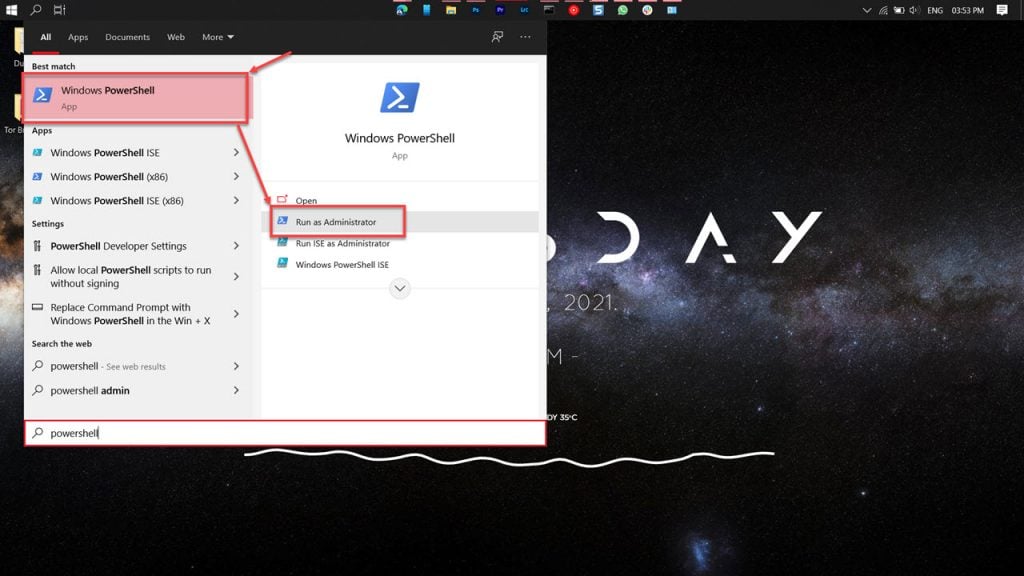
Step 2: Type sfc /scannow to scan your system for issues.
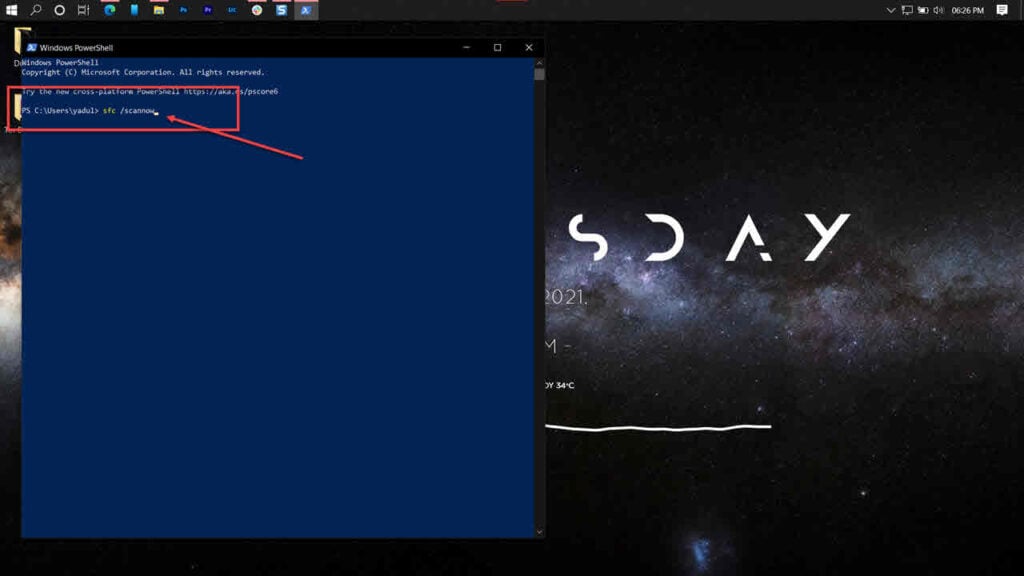
Step 3: If the SFC scan finds any problem, use the following command to resolve them.
DISM /Online /Cleanup-Image /RestoreHealth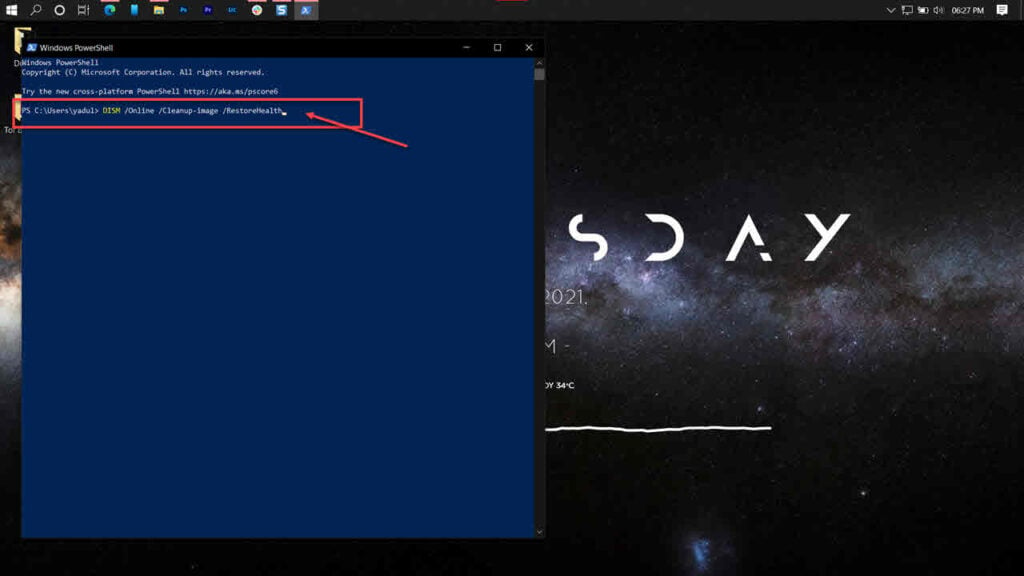
Restart your PC, and the error should’ve been resolved. If that doesn’t help, you can also run a DISM scan to fix any other errors by using this guide.
Update your drivers
Out of date or corrupt drivers can also cause numerous hardware problems leading to such errors. If you haven’t updated your drivers in a while, now’s the time to do so.
Step 1: Right-click Start and select Device Manager from the menu.
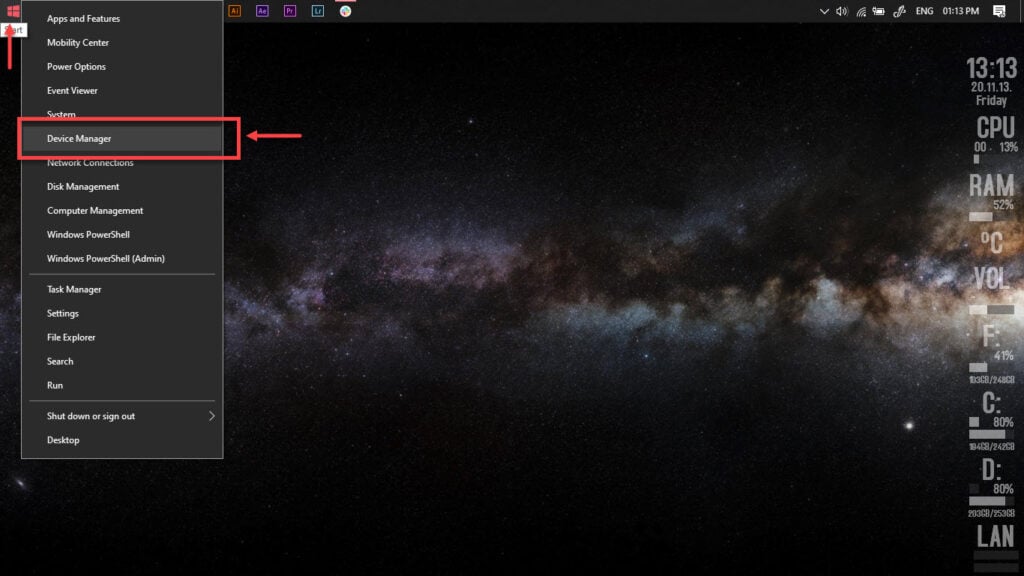
Step 2: Under Display Adaptors, find your storage drive, right-click it followed by Update driver.
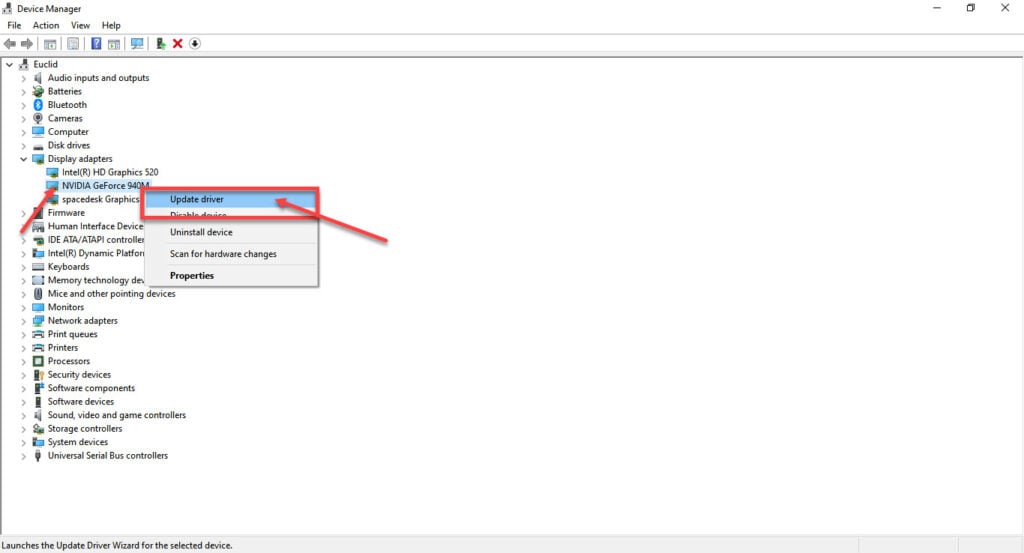
Step 3: Click on Search automatically for drivers. Windows will then automatically look for and download the latest drivers.
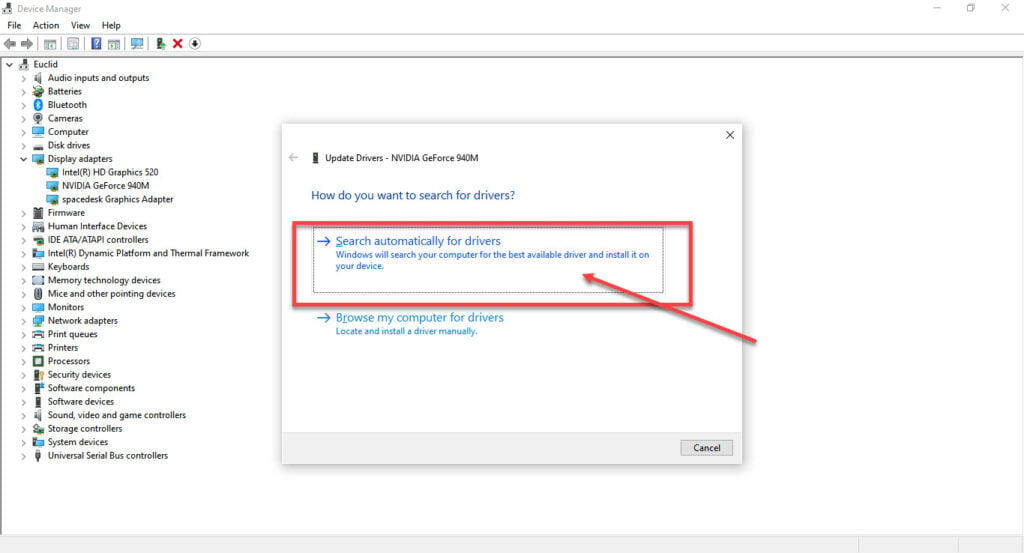
While this should help resolve the error, in case it doesn’t, click Uninstall device and restart your PC to force Windows to install the required drivers. You can then update them later.
Also read: Page cannot be displayed: 7 Fixes
Run the Windows hardware troubleshooter
Windows 10 comes with a few handy troubleshooters that can resolve a bunch of issues. However, for some reason, Microsoft has removed the hardware troubleshooter from the troubleshooter’s menu. So here’s an alternative way to run the hardware troubleshooter.
Step 1: Press Windows key + R to open the Run prompt. Type cmd and hit enter.
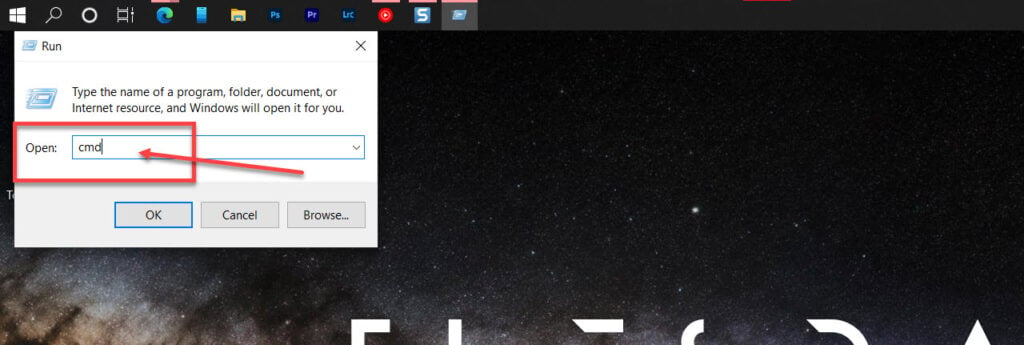
Step 2: Type msdt.exe -id DeviceDiagnostic and press enter. This will launch the hardware troubleshooter.
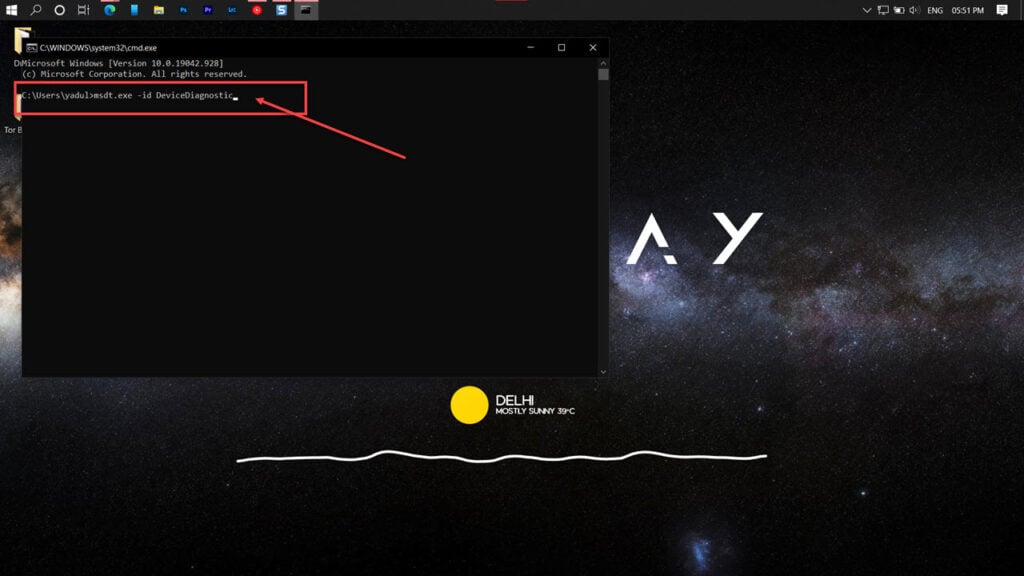
Proceed along as instructed by the troubleshooter.
Change the drive letter
Each drive connected to your PC is assigned a drive letter by default. If your card didn’t get one for some reason, it wouldn’t show up in Windows Explorer.
Step 1: Press Windows Key + R to open the Run prompt. Type diskmgmt.msc and hit enter.

Step 2: Find your SD card reader, right-click it followed by Change Drive Letter and Path.

Step 3: Click on Add, and you’re good to go.

Also read: Kmode exception not handled: 6 Fixes






